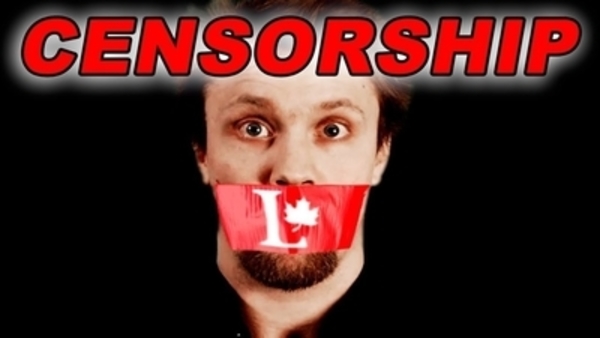What we have is action to transition hate crime definitions away from the law, and place them under “private” jurisdiction.
July 31, 2021
Herein lies the rub– in the name of the protection of the public, the rights and freedoms of Canadians are being incrementally stripped away.
The idea that public interest is the impetus for Prime Minister Justin Trudeau’s internet censorship legislation is a misnomer. The protection is surely directed toward the Liberal government itself.
“The Digital Safety Commissioner of Canada would be in charge of enforcing rules requiring online platforms to remove illegal content. Its authority would include the ability to send inspectors into workplaces and homes in search for documents, software, and information such as computer algorithms.”
Once again, the fine art of subterfuge rears its draconian head. The listed categories of censorship are as follows: “terrorist content, content that incites violence, hate speech, intimate images shared non-consensually, and child sexual exploitation content.”
No question these are legitimate areas of concern. Yet out of the pack, it is the area of hate speech which remains the most nebulous. How will hate speech be defined– as well as judged– within what is nothing short of an “internet revolution.”
“While all of the definitions would draw upon existing law, including current offences and definitions in the Criminal Code, they would be modified in order to tailor them to a regulatory – as opposed to criminal – context,” says the National Post.
In practical terms, the Liberals propose to expand violations beyond the parameters of the law. This change will likely shift jurisdiction to a newly formed Canadian Human Rights Commission, who will apply arbitrary rulings on a case-by-case basis.
“The Liberals have proposed a new definition of hate speech based on Supreme Court decisions in Bill C-36, introduced to tackle online hate by amending Canada’s Criminal Code and Canadian Human Rights Act.”
Distilling this down to its essence, what we have is action to transition “hate crime” definitions away from the law, and place it under “private” jurisdiction.
Those who recall the Salem Witch trails in 18th century New England, take heed. Perhaps a slight exaggeration it is–but not by much.
READ MORE: Should Western Canada Separate Itself From Trudeau’s Globalist Take-Over?
Our elderly generation may recall a period in American history referred to as the McCarthy era. “McCarthyism” was the practice of making unfounded accusations of treason, especially when related to communism. It was characterized by heightened persecution of left-wing individuals, and a campaign of spreading fear of alleged communist and socialist influence on American institutions.
Try this quick experiment– replace the word “communism” with the word “racism.” Has Canada entered into a “witch hunt for racists” era? If so, does this not suggest an incremental move toward replication of totalitarian societies?
Obviously, these are rhetorical questions. Any long term reader of Cultural Action Party writing will know we adhere to these ideas.
In regards to law enforcement busting a move into the living rooms of Canadians, executive director of the Canadian Constitution Foundation, Joanna Baron, has the following to say:
“This looks like a possible section 8 right against unreasonable search and seizure violation.”
Extent to which this will impact the passing of Bill C-36 falls between zero and nothing. Readers may want to consider the degree to which PM Trudeau and team wish to implement internet censorship hate speech legislation. In terms of a pending election, this initiative could well be “number one with a bullet.”
Regarding internet censorship, Let patriots remain clear-headed in regards to internet censorship and hate crime legislation– it will happen, as sure as Canada was born in 1867.
Turns out Justin Trudeau does not simply admire China. Imitation being the greatest form of flattery, our prime minister is in the process of replicating the Great Internet Firewall of China as we speak.
https://capforcanada.com/
— Brad Salzberg, CAP Founder (Est. 2016)



